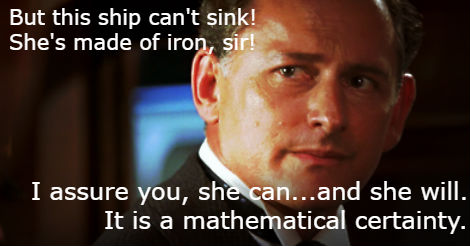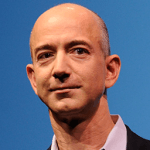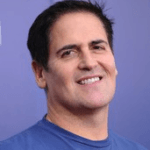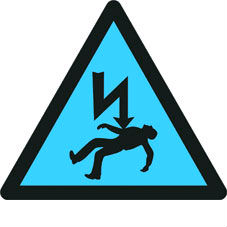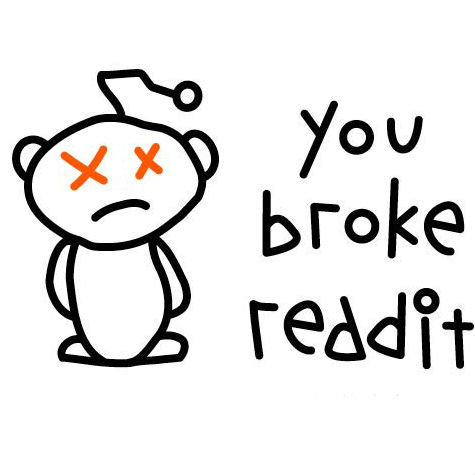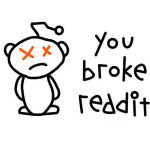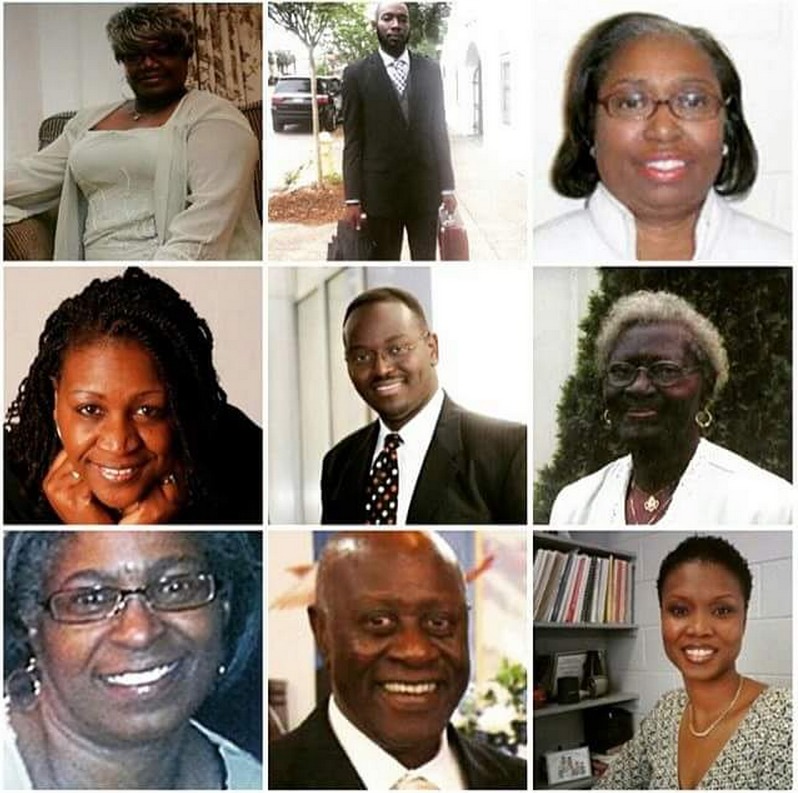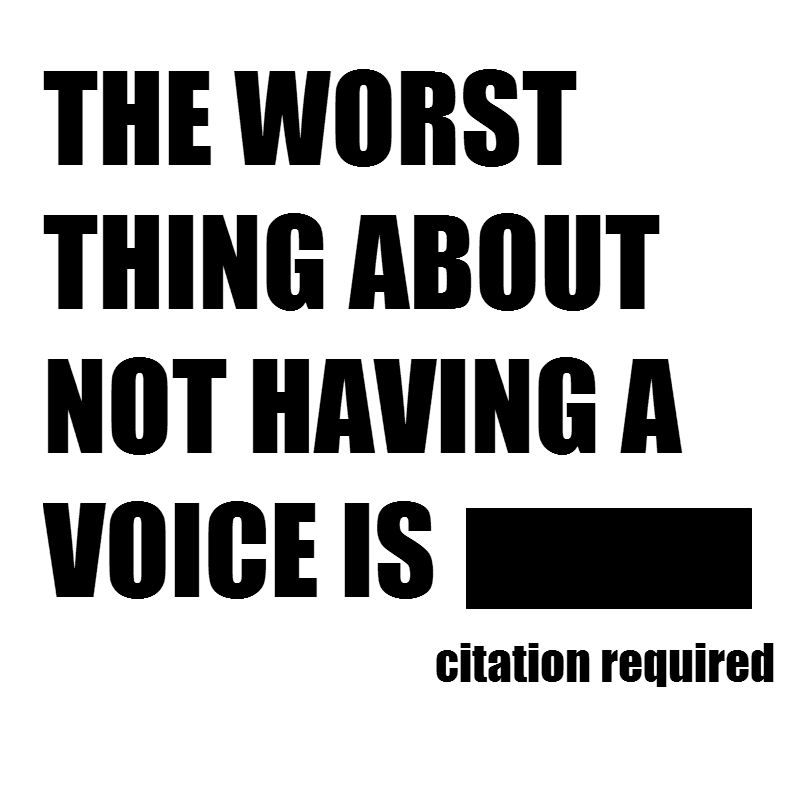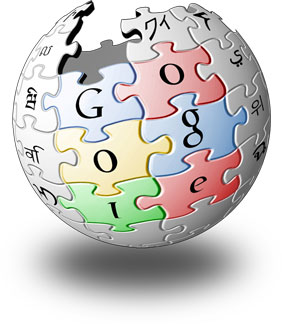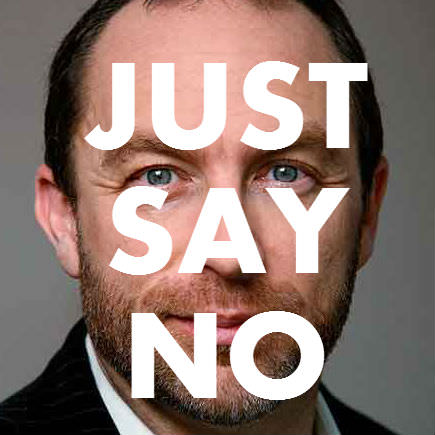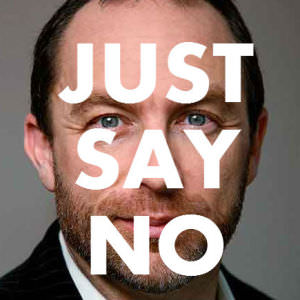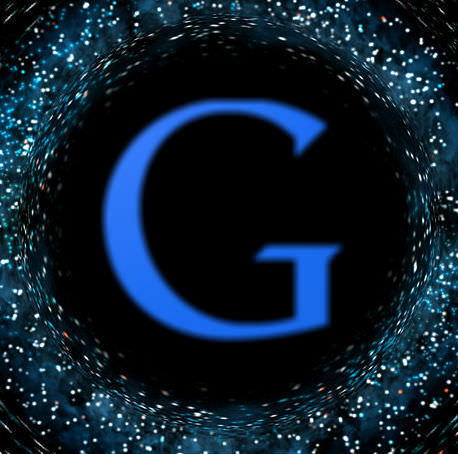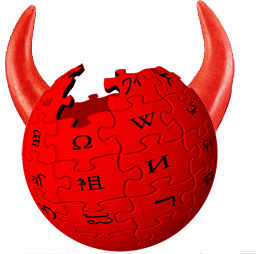WikiTribune Will Sink
0 Comments
A few days ago, it seemed that every newspaper in the world ran the story that Jimmy Wales, co-founder of Wikipedia, is starting a new ‘evidence-based journalism’ site, called WikiTribune, which will incorporate some elements of wiki-based collaborative fact checking. As Wales says:
The community of contributors will vet the facts, help make sure the language is factual and neutral, and will, to the maximum extent possible, be transparent about the source of news posting full transcripts, video, and audio of interviews. In this way, Wikitribune aims to combat the increasing proliferation of online fake news.
Many people who don’t know much about Wikipedia or news, or facts it seems, are hailing Wales’ site as a new force in journalism. Even Kyle Pope, the editor in chief of the Columbia Journalism Review says:
I’m really hesitant to say this is a dumb idea because Wikipedia turned out to be so brilliant.
I’m not hesitant. This is a dumb idea.
About me
I founded:
- japantoday.com, one of the world’s largest news sites and the first site in the world to have user comments directly under news stories.
- WeCheck, a collaborative fact checking site, which included a fact-check watch where I detailed fact check fails, and the techniques the fact checkers use to distort their findings to suit their narrative.
- Newslines, this site, which is a social news agency that aggregates news for large social media fan pages.
I was also a Wikipedia editor for several painful years and have written multiple articles about the site’s software, policies, gender bias, its co-dependent relationship with Google, and the way it raises funds (see list at the bottom of this article).
So I know a little about news, fact checking, Wikipedia and new media. I believe that WikiTribune will fail at being factual and neutral, and that its goal of combating fake news is a fool’s errand, driven by a misreading of the market. Feel free to disagree in the comments…
Quality content is not a business model
Presumably, Wales doesn’t intend to compete with The Daily Mail, which was recently banned as a source from Wikipedia. Instead, he intends to compete with The New York Times or The Guardian, of which Wales was a director until the announcement.
But that focus on ‘quality’ journalism immediately shrinks the market, and makes the chances of success much smaller.
In Zero to One, Peter Thiel says that startups should seek a monopoly in a small market and use that to expand. Yet Wales thinks he can compete with well funded existing high-quality news brands in a small market? That’s not a winning proposition.
Distribution is King
Traditional news media is in full-panic mode. Their print readers are dying of old age, and they can’t survive on the web without Google and Facebook, who have taken all of their distribution and advertising. According to the trade association Digital Content Next, 90 per cent of growth in digital ad revenue over 2015 went to Facebook and Google.
Many people think that ‘content is king’, but publishers know that distribution is actually king. It’s to be expected that journalists believe great writing is what drives their industry. But they forget that a newspaper used to offer two things: content and convenience. The paper was conveniently delivered to your door, until the smartphone came along and delivered it to wherever you and your phone are.
The power of distribution over quality can be demonstrated if you imagine Facebook creating its own low-quality news service. In that case, Facebook’s readers wouldn’t need to go outside the site at all, and all external publishers would fail. In other words, it doesn’t matter how great your content is if you can’t get it seen.
WikiTribune offers no solution to the distribution issue, so it is doomed to the same fate as the media it hopes to replace.
‘Fake News’ is fake news
Wales says WikiTribune is an antidote to ‘fake news’. But the fake news controversy is itself fake news, manufactured by traditional news media to deflect attention from their own failings.
- Faced with the loss of their distribution to Google and Facebook, traditional news media has labelled Facebook as a purveyor of fake news, while maintaining that they have a lock on quality news. As if that will lure people back to their badly-designed, ad-filled sites. People will choose convenience over quality every time.
- To cover their own shenanigans during the election campaign.
Wales says he decided to launch WikiTribune when he heard President Trump’s advisor Kellyanne Conway defend the White House’s inflated claims about the size of the inauguration crowd as “alternative facts”.
While that was a misstep, much of the reporting on Trump by the traditional media, their factcheckers, and pollsters, has been skewed to fit their anti-Trump narrative. I lost count of the biased fact checks, skewed polls and outright lies and evasions in the establishment media against Trump.
But, I hear you say, ‘Trump’s a liar too!’ So we have a battle of the truths (or lies), between Trump and the media. A battle of “alternative facts” if you will.
The shocking part of this to me was that many of these distortions were directed to their own readers, who are quite willing to read fabricated stories if it suits their worldview. Lying to your own readers for profit. Now there’s a business model!
In any case, the general public were not impressed by the media’s efforts. In part, as a f-you to the media, they elected Trump. As for fact checkers, their work has been so successful that now only 29% of people in the U.S. trust fact checkers.
If Wales actually believes that there is a fake news epidemic then he’s not an upstart at all: He’s part of the system.
Wikis are terrible for determining facts
We want to bring [the] fact-based, fact-checking mentality we know from Wikipedia to news – Jimmy Wales
Only the most deluded of Wikiutopians could think that the news writing process can be improved by a wiki. Wikinews is a failure, and Wikipedia has a worldwide reputation for unreliability, so much so that schoolchildren in the U.S. are specifically instructed not to use it as a source. Apart from the many scandals about false information being inserted into pages, pages based on current events are rife with bias.
That’s because on Wikipedia the strongest group of editors on the page determine the narrative. I once spent months trying to get factual information onto a biography page. In 1994, Richard Gere and Cindy Crawford took out a full page ad in The Times to say their marriage was strong. While they ended up divorcing a year later, the letter was a major incident in their marriage, which I thought should be on Wikipedia.
Even though Gere and Crawford had placed the ad themselves, a Wikipedia editor decided my information was ‘insensitive to the subject’. When I offered suggestions to change the rule I was told in no uncertain terms to back off by an administrator.
Not that it mattered; a few weeks later that same administrator injected themselves into a completely different topic I was contributing on, and blocked me from the site for five years.
That discussion about one sentence took two months. Ambiguous rules were arbitrarily applied by abusive administrators. All resulting in censorship of verifiable, factual material based on a bogus idea of sensitivity. How on earth can that work for news?
Even now, it’s practically impossible for new contributors to add anything to a Wikipedia page. Changes, however factual and verified, will instantly be reverted by bands of aggressive editors.
It’s worth noting that the whole ethos of Wikipedia was set up by Wales, and in the 15 years of operation, none of these issues have been fixed.
I abandoned my wiki-based fact check when I realised that – just like on Wikipedia — the narrative would be determined by the most powerful editors on the page. There’s nothing to say WikiTribune won’t have the same issues, and the lack of engagement on the topic indicates that Wales doesn’t even know it’s an issue.
Wiki + news = slow
Those who think Wales is some sort of genius for coming up with this idea might want to reflect on the other co-founder of Wikipedia, Larry Sanger. In 2015, Larry set up a site called Infobitt, which was — you guessed it — a fact-based news site. He didn’t get quite as much press though, despite having a better idea.
In Larry’s system, each fact in an article was reviewed for accuracy in a structured way, as opposed to Wikipedia’s might-is-right process. I actually thought Larry’s idea would have worked better for Wikipedia, where editors could take the time to review facts. But for a news site, it’s too slow.
Let’s say there is a plane crash in Asia. At first, 20 people are reported dead. Then a day later it’s updated to 40 deaths. The facts are correct, but the news value has passed. And in the meantime all anyone cares about is how many likes they get for reposting the crash video on Facebook.
To rephrase the popular saying, “A like goes half way round the world before the truth has time to pull up its pants”. By the time ‘the truth’ comes out, you’ve already moved on to the next piece of news that confirms your biases.
Infobitt foundered within a year.
Who pays wins
Wales says that those who contribute financially to WikiTribune will have a say in the topics they cover:
If you can get together a certain number of people who are interested in Bitcoin [for example] and you flag that when you sign up as a monthly supporter, then we’ll hire a Bitcoin person to do the beat full time. But it is going to be neutral. They can’t pick their favorite hack, who pumps forward their agenda.
Wales does not say how the site is ‘going to be neutral’. In addition to the might-is-right bias I mentioned above, another source of bias on Wikipedia is undisclosed paid editing by PR companies and other individuals, who are paid to massage corporate and celebrity news pages.
Yet, despite Wales making many proclamations about the damage such editing causes on Wikipedia, he is inviting the pushing of particular topics on WikiTribune based on how much money the topic raises. Paid news editing invites a multitude of ethical dilemmas:
- What if the contributors want to investigate Wikipedia, Wikia, or even Wales himself?
- What if they want to investigate causes he supports, or investigate ‘friends of Jimbo,’ like, say, Tony Blair?
Contributor bias
Wales could at least have added something new into the mix. For example, a system that pays people for their contributions. We have had some success with this model at Newslines, and an interesting side effect was that it completely reversed the gender bias that is so prevalent in Wikipedia. Wikipedia contributors are over 90% male, and despite a number of initiatives that ratio is not changing.
That’s because the system pushes out women and minorities in favour of young men who would rather write about the latest Simpsons’ episode or their favorite porn stars, than any women scientist. Wales recent comments on the ‘Gender Gap’ show he is tone deaf to the issue, and has no understanding of the underlying causes.
But let’s say Wales manages to capture the same kind of contributors as Wikipedia. How will a news site whose contributors are mainly young, white, male, liberal college students deal with issues relevant to the black community, or to women?
Work for free to make Jimmy rich!
Wikipedia was able to add contributors due to its social value. Put your work and knowledge into the system for free and we all benefit through the dissemination of free information unsullied by advertising.
Wikipedia itself only gains donations because it distorts its fundraising message, which says the site is in imminent danger of collapse. In fact, it has $100 million in the bank.
But little of that cash goes to Wales because the site is run by the WikiMedia Foundation, a non-profit. Wales is not an owner of Wikipedia, and has not made much money from it, other than through his directorship and through speaking engagements.
But WikiTribune *is* owned by Wales, so when you contribute to the system, you are working for free for his for-profit venture. You may believe that’s a reasonable trade off. You may be happy to spend your money or to even donate because you believe in the big picture. Good for you. Here’s to the crazy ones!
And so we set sail…
Is there a plus side? Is there something that can elevate the content or the distribution of WikiTribune? I don’t see it. The project was launched on a false premise, has no competitive advantage, is slower and more complicated than current news systems, will be of dubious use to readers, and sets sail into a shrinking sea full of dangerous competitors.
It’s inevitable that WikiTribune will hit the iceberg of reality, and sink.
Related:
The Sexists at the top of Wikipedia
Google and Wikipedia: Best Friends Forever
Mark Devlin is the founder and CEO of Newslines. Find out more about him here. Click here to follow Mark on Twitter.
Newslines is a new kind of new search engine that is a solution to media bias. Our aim is to summarise all of the world’s news, from the past to the present, strip it of bias and commentary, leaving just the facts, and organise it into news timelines. Our newsline of Emma Sulkowicz is a good example of a non-biased newsline, created from highly-partisan sources.
We currently have three million page views/month and aim to get to one billion page views/month within three years. If you are interested in helping us grow, please contact Mark at info@newslines.org. You can read more about Newslines here.

